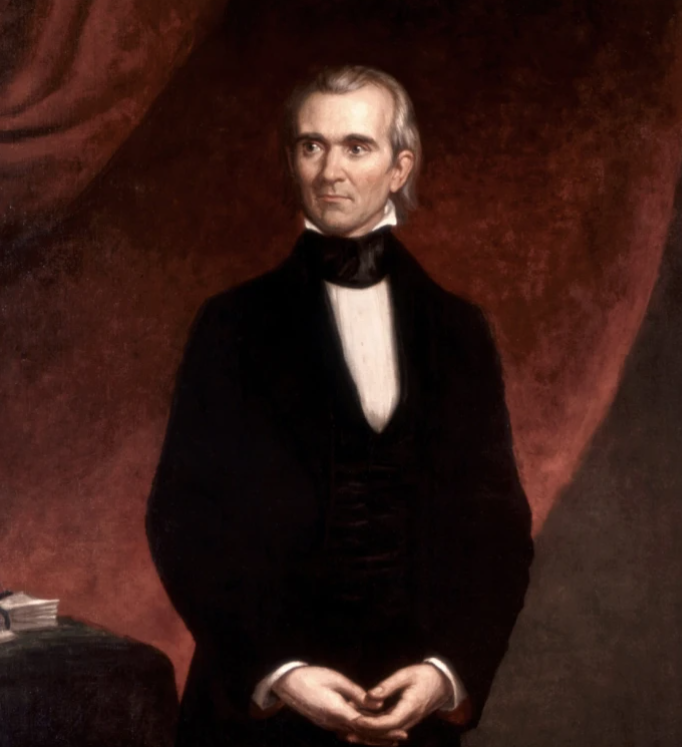James K. Polk served as the and 9th governor of Tennessee and 13th Speaker of the House of Representatives before serving as the 11th President of the United States. Prior to his election, Polk was a dedicated member of the Democratic Party, and a fervent supporter of Jacksonian democracy, a movement which sought increased democracy and, consequently, decreased aristocracy.
Early Career
Polk was born in Mecklenburg County, North Carolina, and graduated from the University of North Carolina in 1818 with honors and studied law under the supervision of a renowned Nashville attorney. Early in his legal career, Polk became involved in politics which lead him to service in the Tennessee legislature. In 1825, Tennessee voters elected Polk to the House of Representatives, where he served seven terms. Between 1835 and 1839, Polk served as the Speaker of the House, after which he became the Governor of Tennessee.
Unexpectedly, Polk became the Democratic nominee for President in 1844, defeating former president Martin Van Buren. Although previously understated, Polk gained widespread support as the candidate who stood for expansion, the “common man”, and suffrage for all white men. Polk ran against U.S Senator Henry Clay, a member of the Whig Party whose campaign slogan was “Who is James K. Polk?”. Despite Clay’s harmful rhetoric, Polk appealed to voters and was elected to serve as the 11th President of the United States.
Polk was married to Sarah Childress, but the couple never had children. Sara Polk became President Polk’s trusted advisor over the course of his political career.
Presidential Tenure
Polk was the youngest president to enter the White House at the time, but his age would not be mistaken for immaturity. He set four major goals and was committed to fulfilling each one: reducing tariffs, reinstating an independent treasury, acquiring California and New Mexico from Mexico, gaining control of the Oregon Territory. Polk met each of these ambitious goals over his tenure.
As a strong supporter of states’ rights, Polk adamantly endorsed the “war” on the Bank of the United States, which was spearheaded by his friend, Andrew Jackson. Polk favored a decentralized government banking system, which he believed would give power to the “common man.”
As a passionate believer in manifest destiny, the belief that westward expansion was the pursuit of God’s plan, Polk successfully expanded the nation from the Atlantic Ocean to the Pacific Ocean during his time in office. On December 29, 1845, Texas was annexed by the United States, becoming the 28th state. As a consequence, relations with Mexico declined, leading to the Mexican American War from 1846-1848. The United States was victorious, the Rio Grande was identified as America’s southern border, and Mexico ceded to the United States the land that makes up most of present-day Arizona, California, Colorado, Nevada, New Mexico, Utah, and Wyoming for $15 million. By the end of his presidency, Iowa and Wisconsin has also joined the Union.
In 1846, the Oregon Treaty marked another remarkable land acquisition. After a diplomatic settlement with the British, the United States acquired present-day Washington, Oregon, and Idaho in their entirety, as well as parts of Wyoming and Montana. In addition to his great political success, Polk was also successful in establishing the U.S naval Academy, the Smithsonian Institution and the Department of Interior.






